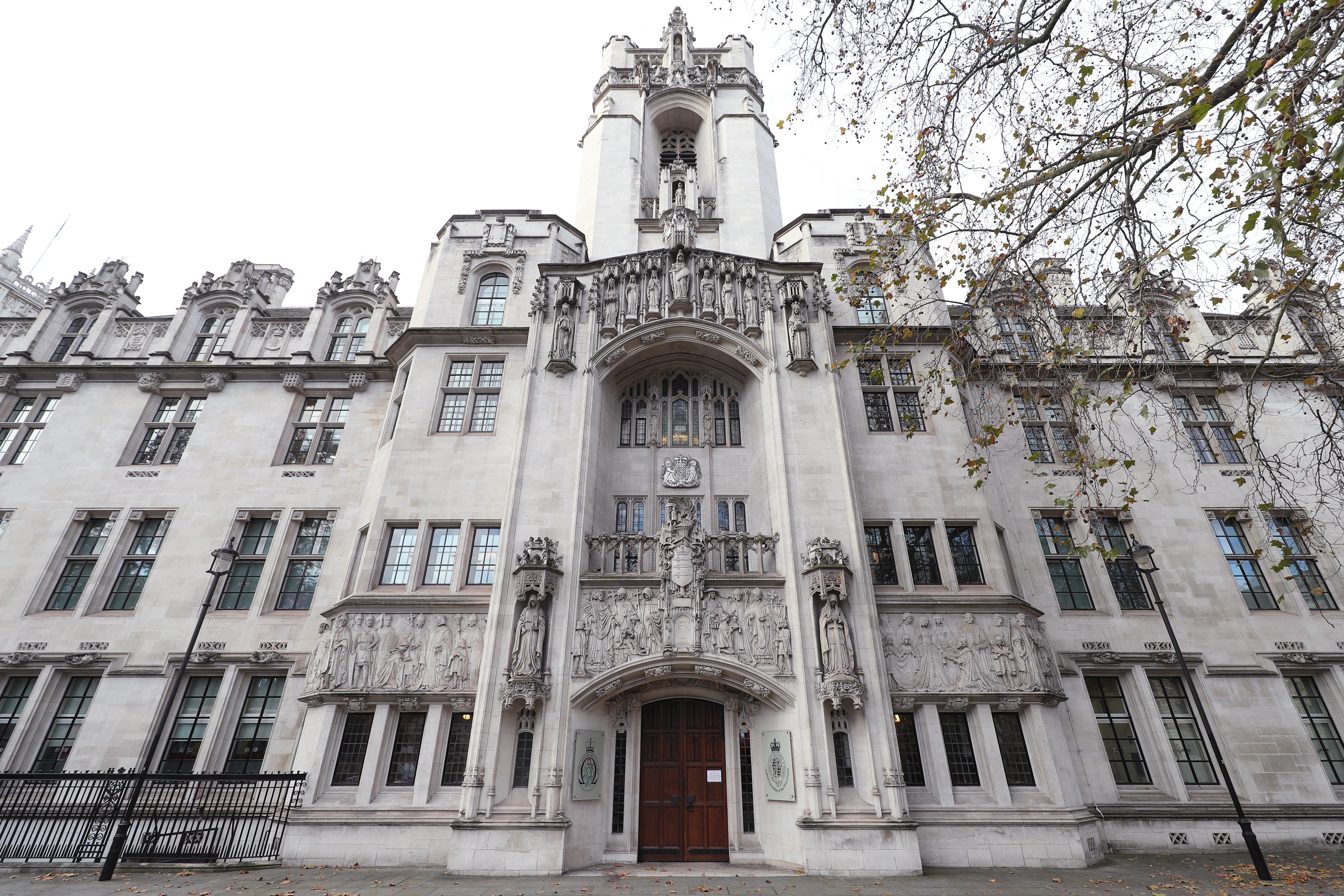
The British government did not formally assess whether Shamima Begum was a victim of trafficking before putting her in “exile for life”, a court has heard.
Lawyers representing the 23-year-old, who travelled to join Isis in Syria aged 15, argue that she was “groomed” for the purpose of having sex with adult fighters and bearing their children.
Ms Begum's first two children died as infants and the third, born shortly after she was found in a detention camp in 2019, died at less than three weeks old.
In the latest stage of Ms Begum's battle against the decision to remove her British citizenship, lawyers told the Special Immigration Appeals Commission proper assessments were not made.
Then home secretary Sajid Javid was accused of acting with “extreme speed” by removing her nationality four days after The Times published an interview with Ms Begum in a detention camp.
Samantha Knights KC, for Ms Begum, said: “This case concerns a British child aged 15 who was persuaded, influenced and affected with her friends by a determined and effective Isis propaganda machine.”
She told Monday’s hearing that Mr Javid decided to remove her citizenship in an “extraordinary way” in February 2019, with “inadequate and over-hasty steps taken [to put her] effectively in exile for life”.

In written submissions, Ms Knights said there was “overwhelming” evidence that Ms Begum had been “recruited, transported, transferred, harboured and received in Syria for the purposes of ‘sexual exploitation’ and ‘marriag’' to an adult male”.
The document said the government confirmed that a man called Mohammed al-Rashed transported Ms Begum and two school friends across the Turkey-Syria border on 20 February 2015.
A book by Richard Kerbaj alleged that he was passing intelligence to Canadian intelligence services at the time but the UK has not confirmed the claim, or whether British authorities were passed any information before Ms Begum reached Syria.

Lawyers representing the Home Office said that there were no errors of law in Mr Javid's decision and that the government did not accept Ms Begum was trafficked.
But a senior official giving evidence to the hearing said that no formal trafficking assessment had been carried out because she was outside the UK’s jurisdiction.
Philip Larkin, deputy head of the Homeland Security Group's special cases unit, said: “No formal trafficking assessment or conclusion was reached, however the circumstances and factors Ms Begum's representatives would say were relevant were in the home secretary’s advice and were part of his considerations.”
He said Mr Javid “will have taken a view on the circumstances of her departure from the UK and what had taken place over the intervening four years”.

Sir James Eadie KC, for the Home Office, said in written submissions that the security services “continue to assess that Ms Begum poses a risk to national security”.
“This is a case about national security,” he said, later adding: “This is not a case about trafficking.”
The court was presented with a summary of an MI5 assessment saying that Ms Begum had travelled to join Isis and “aligned herself” with the group.
Sir James argued that she only left its territory for safety reasons as the so-called caliphate fell, and that press interviews after she was discovered in the al-Hol camp “expressed no remorse.”

Ms Begum is also challenging the removal of her British citizenship on the grounds that it made her “de facto stateless” and that the decision was predetermined.
The hearing, before Mr Justice Jay, is due to finish on Friday and a ruling will be given at a later date.







